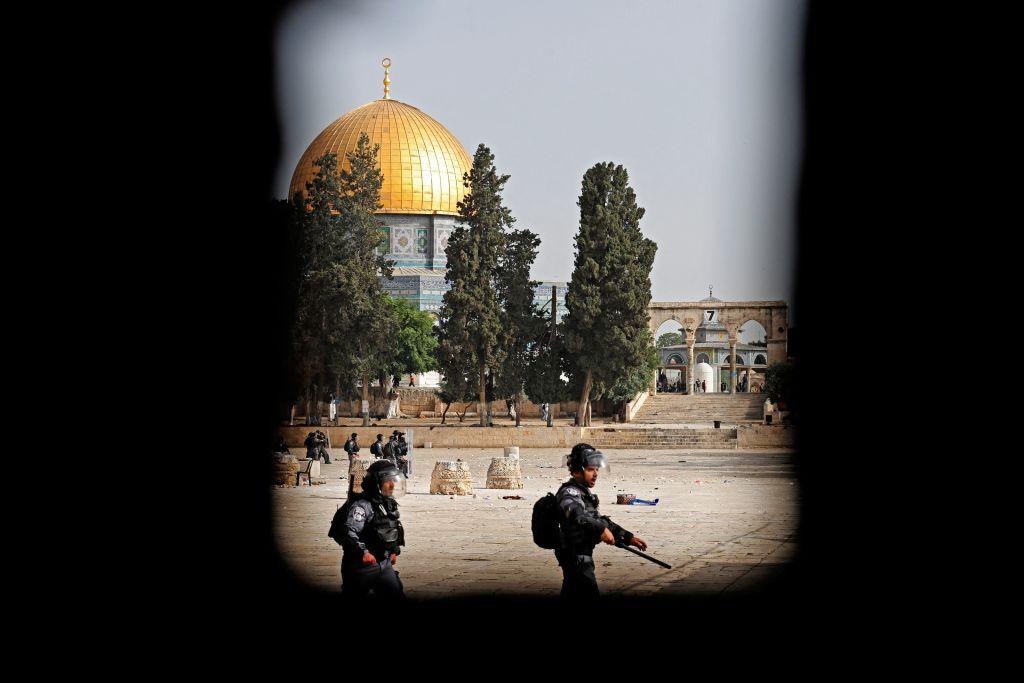
Frustration over President Mahmoud Abbas’s decision to delay what would have been the first legislative elections to be held in the Palestinian Territories in 15 years has been overshadowed by fears made real of renewed Israeli-Palestinian conflict. What began as protests in early April over the blocking of Palestinian gatherings during Ramadan and the eviction of Palestinians from their homes to make way for settlers in East Jerusalem has erupted into widescale violence, culminating in rocket attacks on Israel and retaliatory Israeli airstrikes on Gaza.
Amid the conflict, there can be little doubt that both Israeli Prime Minister Benjamin Netanyahu and Hamas in Gaza saw the unrest as an opportunity to embolden their respective positions. For Netanyahu, the firing of rockets into Israel by Hamas was the crossing of a ‘red line’ from which there was no turning back, with escalation in the form of retaliatory airstrikes a means for Netanyahu to reaffirm both Israel’s authority in Jerusalem and his leadership of the country. For Hamas, the issue of eviction in East Jerusalem was an opportunity for it to wedge Abbas’s Fatah party, which has all but disappeared from the political stage.
By delaying the elections Abbas feared he’d lose, the embattled Fatah leader has played into the hands of Hamas. Abbas has said that elections can’t be held until Israel agrees to allow Palestinians in East Jerusalem the right to vote. However, in reality, Abbas and Fatah more broadly have little capacity to shape affairs in Jerusalem, let alone negotiate with Israel, coordinate with the international community or ensure security for Palestinians. Hamas has claimed the delay is evidence of Fatah’s corrupt style of governance and a grab for power by Abbas. And in its intention to intensify its retaliatory efforts against Israel in the current crisis, Hamas is positioning itself to be the true heart of Palestinian resistance.
The truth is that elections in this part of the world have never been easy and while Israel has the capacity to undermine genuinely free elections, the Palestinian leadership has a responsibility to support the fundamental freedoms of its people. In the legislative elections of 25 January 2006, Palestinians demonstrated that they had the institutions in place to run free and fair elections.
Irrespective of the inherent difficulties in running elections under occupation, the independently run Palestinian Central Elections Commission managed a successful electoral process in accordance with internationally accepted standards. While Hamas’s victory at the ballot box came as a shock to many, the election commission’s efforts garnered public trust and the praise of the international community. It was also the assurances made by key figures, notably Abbas, alongside international pressure that facilitated the resolution of problematic issues, such as voting rights in East Jerusalem, and ensured that elections were held as scheduled.
The opportunity lost currently is that which is faced by ordinary Palestinians keen to institute democratic governance in long overdue elections. The registration of 2.6 million out of 2.8 million eligible voters for this month’s now-cancelled elections attests to Palestinians’ desire to determine a political future of their own making. The emergence of new political groups not aligned to traditional power blocs is also promising. Close to a third of the 1,400 registered candidates were women and 39% were under the age of 40.
The EU has called for a new election date to be set without delay and the US State Department has said ‘the exercise of democratic elections is a matter for the Palestinian people and for the Palestinian leadership to determine’. In the unfolding crisis, the re-scheduling of elections couldn’t be further from view, however. Netanyahu’s announcement that Israel is ‘at the height of a weighty campaign’ does little but guarantee a further deterioration of the situation. The tragedy is the loss and suffering that Israelis and Palestinians will continue to endure in the days ahead.